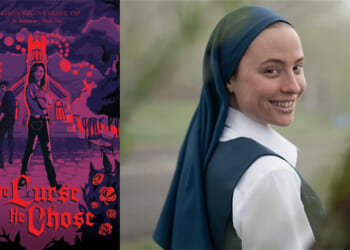Recently, one couple shared their story about discerning the morality of embryo adoption and their final decision to go through with it because they are otherwise infertile. A significant portion of the article centers around the moral reasoning through which they determined that it was an acceptable choice. Sadly, and despite their best efforts to find moral guidance, there are serious issues with their reasoning and interpretation of Magisterial teachings which have led them, and may lead others, astray.
First, they do note that the Church has advised against embryo adoption, especially in the CDF’s document Dignitas Personae, section nineteen. They reference Dr. Jeffrey Mirus’s interpretation of this paragraph to claim that this document, “stops short of declaring embryo adoption sinful.” This should strike any reader familiar with Dignitas Personae paragraph nineteen as quite odd, since this section concludes with the dramatic statement that there seems to be no just solution to the issue of frozen embryos: “All things considered, it needs to be recognized that the thousands of abandoned embryos represent a situation of injustice which in fact cannot be resolved” (emphasis original). The CDF then cites a talk given by St. John Paul II where he said the same thing. Given that unjust acts are indeed sins, the CDF clearly seems to imply that embryo adoption is sinful.
How does Dr. Jeffry Mirus interpret this passage to mean that embryo adoption is not sinful? He thinks this statement simply refers to the fact that there are too many embryos frozen for embryo adoption to be a practical solution to the problem. He writes:
The section immediately concludes by repeating the Church’s statement of difficulty: “All things considered, it needs to be recognized that the thousands of abandoned embryos represent a situation of injustice which in fact cannot be resolved’”(19). Caveat 2: But again, this would be true even if embryo adoption were ultimately determined to be licit, not least because of the sheer numbers involved.
Yet, this interpretation cannot be sound as the CDF here uses the language of justice, not practicality or effectiveness. The Church did not say that we know of no effective solution to the millions of frozen embryos, but that we know of no just solution. By saying there seems to be no just solution, the Church clearly considers embryo adoption to be unjust, which is to say, sinful.
The second major issue with the moral reasoning is in its own interpretation of Dignitas Personae, #19, which the authors say came from consultations with the National Catholic Bioethics Center (NCBC). The couple had reached out to the NCBC to get advice on their particular situation, as the wife is completely infertile due to Turner Syndrome. This is relevant as Dignitas Personae, #19 says, “The proposal that these embryos could be put at the disposal of infertile couples as a treatment for infertility is not ethically acceptable.” According to the article, the couple was told that since embryo adoption would not cure their infertility, the CDF’s statement does not apply to them:
Unlike unblocking fallopian tubes, reversing sterilization, or hormone therapy, [embryo adoption] does not restore fertility—it merely allows the adoption of an existing embryo. In cases like Scarlett’s, where conception is impossible, [embryo adoption] cannot rightly be considered a “treatment for infertility,” as there is no fertility to be restored. When Scarlett sought guidance from the Catholic Bioethics Center, she explained her complete infertility. Representatives noted that because she could never conceive naturally, embryo adoption was not a treatment for infertility and therefore could potentially be morally permissible.
This reasoning should confuse anyone. Embryo adoption does not cause a previously infertile person to become fertile, as if that person could not conceive through natural means. Like IVF, embryo adoption as a treatment for infertility merely works around the person’s infertility through artificial means. Neither procedure helps a woman regain her natural, healthy fertility. Thus, when the CDF said that embryo adoption could not be a moral treatment for infertility, they had in mind using it to achieve pregnancy when one is infertile, not as if embryo adoption would itself cure the underlying cause of one’s infertility, therefore enabling one to conceive naturally at a later date. Therefore, the fact that one is already infertile has no bearing on the morality of embryo adoption.
In summary, the Church does call embryo adoption a sin by calling it an unjust solution to the issue of frozen embryos. Infertility does not give one a pass on this teaching. On the contrary, seeking embryo adoption as a way to have a baby when one is otherwise infertile is explicitly called unethical.
While my heart certainly goes out to this family suffering from infertility, as a theologian I worry greatly about people being led astray by their fallacious reasoning. The Church currently calls embryo adoption, even as a way to save the lives of these poor abandoned babies, unjust. As I noted in a previous article, this teaching of the Church against embryo adoption is not infallible and may be changed in the future, but we still have a serious obligation to follow it.
Photo by Austin Lowman on Unsplash












